Morelganj, Bagerhat, June 25 (V7N) – An influential group is allegedly attempting to forcibly convert 300 bighas of ancestral cropland into fish enclosures in Kuardah-Nehalpur village, Bolaibunia union, Morelganj, Bagerhat. This action has sparked widespread protests from affected landowners, who formed a human chain on Tuesday to voice their grievances. Fifty villagers have also lodged a written complaint with the Upazila Executive Officer (UNO) and other relevant authorities.
The human chain, held at 11 AM on Tuesday in Kuarda-Nehalpur village, saw participation from ordinary farmers and landowners, including men, women, and children. They complained that this 300-bigha crop field, passed down through generations since before Bangladesh's independence, has traditionally been used for cultivating crops and has never been fenced for fish farming.
According to the protesting landowners, an influential group, led by Sadiq Sikder and including Aslam Sheikh and Kamruzzaman Mukul, is now trying to forcibly fence the land for fish cultivation. They are reportedly intimidating and threatening the local farmers. The group has already cut soil and dug ditches, blocking small canals vital for water movement, which has caused waterlogging in the crop fields.
Approximately 400 farmers in the village depend on this land, producing Aman and Boro rice, as well as various Rabi crops. Many families own between 3-4 bighas to 50 bighas of land in this area. Additionally, a significant number of residents earn their livelihood by catching fish in the existing canals and drains. The villagers fear that the forced conversion to fish enclosures will severely disrupt crop production and impact their livelihoods.
The aggrieved farmers, including Abual Sardar, Mosharef Matubbar, Jalal Uddin, Nesar Matubbar, Rajab Ali Sheikh, Rabeya Begum, Dulal Khan, and Khalilur Rahman, have appealed for the intervention of higher administration to ensure they can continue farming peacefully on their land.
In response to the allegations, Sadiq Sikder claimed that he is enclosing the area for fish farming with the written permission of over a hundred landowners. He denied using force, stating that his family owns 50 bighas of land in the field, including 10 bighas. He suggested that 2-3 individuals are conspiring against him because he refused to include their shares in the enclosure.
Upazila Executive Officer Habibullah confirmed that both parties have been summoned in response to the written complaint from the landowners of Kuardah-Nekhalpur villages. He assured that if the matter falls within his jurisdiction, maximum efforts would be made to resolve it.
Context of Land Conversion to Aquaculture in Bangladesh:
The conversion of agricultural land to aquaculture, particularly for shrimp and fish farming, has been a growing trend in Bangladesh, especially in coastal areas like Bagerhat. While financially profitable for some, this practice often leads to various socio-economic and environmental challenges:
Livelihood Disruption: Conversion of traditional rice fields to fish farms can displace small-scale farmers and agricultural laborers, leading to job losses and increased vulnerability for those dependent on crop cultivation.
Artificial Scarcity & Hoarding: As seen in the recent rice price hike in Rajshahi, the conversion of cropland to fish farms can reduce the overall land available for staple crop production, potentially contributing to artificial scarcities and price manipulation by large-scale operators.
Environmental Impact: Uncontrolled aquaculture can lead to:
Salinization: Especially in coastal areas, brackish water shrimp farming can lead to salinity intrusion into surrounding agricultural land and freshwater sources, rendering them unusable for traditional farming and impacting drinking water.
Waterlogging and Drainage Issues: Blocking natural water flow through ditches and enclosures, as alleged in Kuardah-Nehalpur, can cause widespread waterlogging in remaining crop fields.
Pollution: Effluent discharge from fish farms, often containing excess feed, chemicals, and waste, can pollute natural water bodies, affecting biodiversity and ecosystem health.
Habitat Loss: The construction of aquaculture farms has historically led to the destruction of natural ecosystems, including mangrove forests and wetlands.
Legal Framework Weaknesses: Existing laws in Bangladesh prohibit the conversion of agricultural land to other uses without proper permission, but enforcement is often weak. There are calls for stricter policies and better coordination among relevant government bodies (e.g., Department of Fisheries, Ministry of Land, Department of Environment) to manage land use changes sustainably.
The incident in Morelganj highlights the ongoing tension between the economic incentives of aquaculture and the food security and traditional livelihoods of rural communities, underscoring the need for effective land use planning and enforcement of environmental and land laws.
END/MPS/RH/



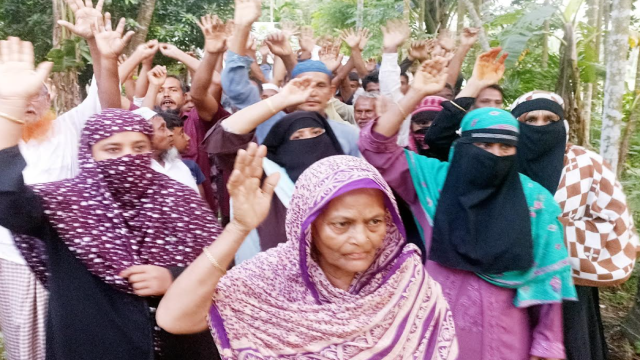
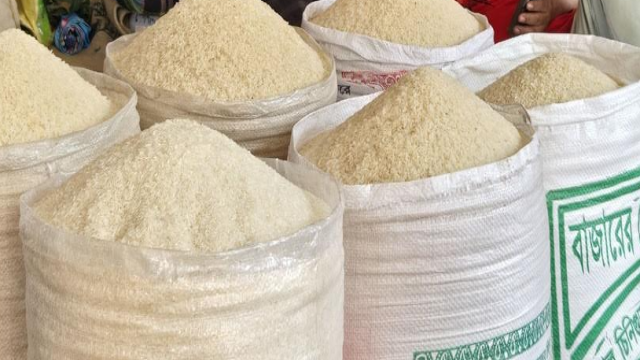

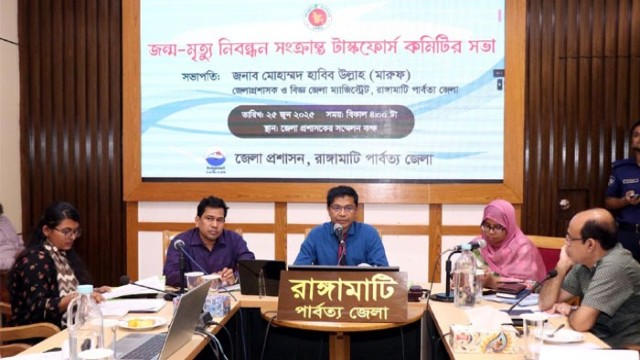
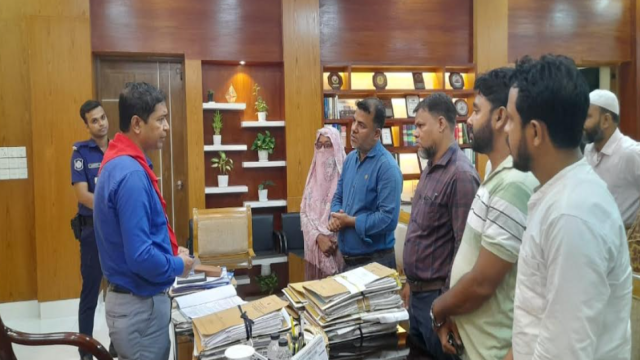













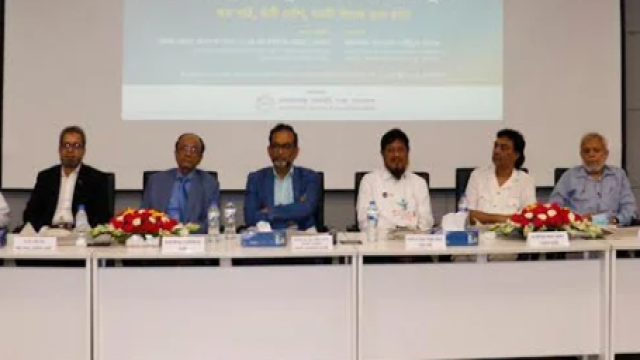

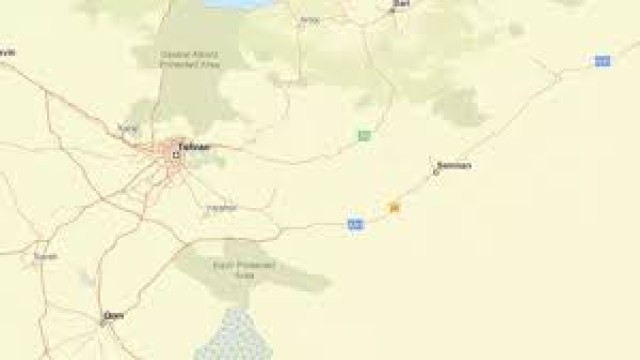






Comment: